How to Care for an Aging Cat
Introduction:
Caring for a cat is a joyful experience, but as your feline companion grows older, their needs evolve in ways that require special attention and care. Knowing how to care for an aging cat can make a significant difference in their comfort, happiness, and longevity. Just like humans, cats go through physical and behavioral changes as they age. These changes may not always be visible at first, but they gradually affect your pet’s quality of life if not properly managed.
Senior cats, usually defined as those aged 10 years and above, often experience decreased energy, joint stiffness, reduced appetite, and changes in their grooming habits. Their immune systems may weaken, making them more prone to illnesses. That’s why it’s important to adapt your home environment and daily routines to meet their evolving needs. Providing proper nutrition, regular veterinary checkups, and emotional support are key pillars in their senior care plan.
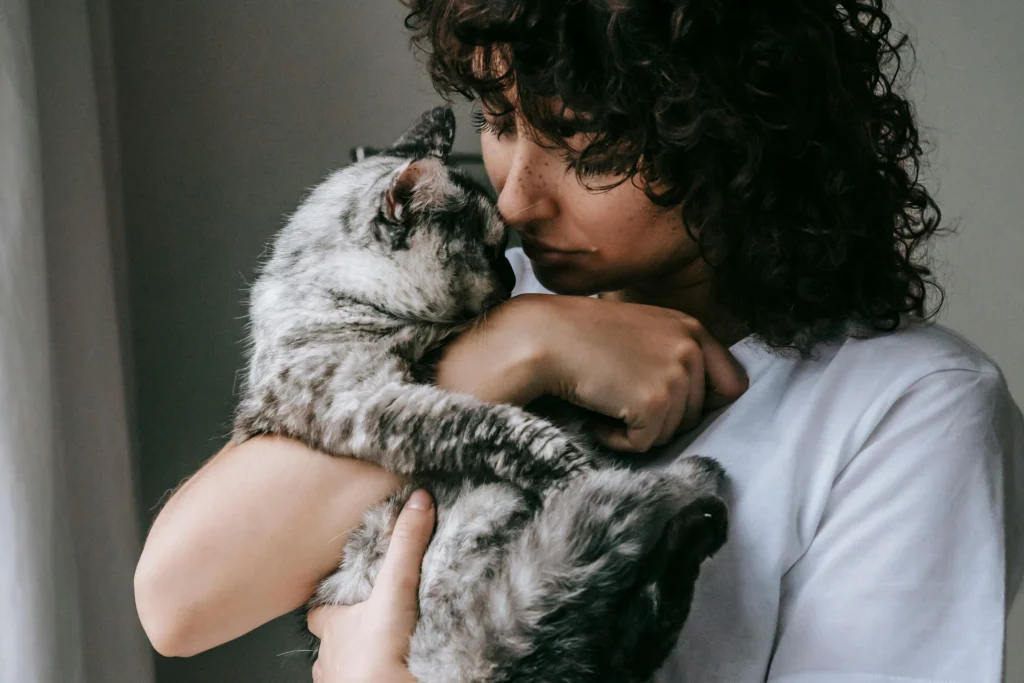
Creating a safe, comfortable living space for an older cat means thinking about accessibility. Soft bedding, easily reachable litter boxes, and feeding areas that don’t require climbing can greatly reduce stress and discomfort. In addition, keeping a close eye on changes in behavior, such as excessive sleeping, vocalization, or litter box avoidance, can help you catch early signs of health issues.
Understanding how to care for an aging cat isn’t just about extending their life, it’s about enriching it. With mindful care, your older cat can continue to live a happy, loving, and dignified life by your side. The journey may require extra patience and adjustments, but the bond you’ll share becomes even more meaningful as the years go on.
Table of Contents
Creating a Comfortable Environment: How to Care for an Aging Cat
As cats age, their mobility, vision, and energy levels decline. One of the most essential parts of learning how to care for an aging cat is ensuring their home is safe, quiet, and easy to navigate. A comfortable environment plays a crucial role in keeping your senior feline stress-free and physically well.
Minimize Physical Strain in the Home
Older cats may struggle to jump onto high surfaces or navigate stairs. To help them adjust, consider adding pet ramps or steps near their favorite spots, like the couch or bed. Keep food and water bowls at ground level to reduce neck and joint strain. Ensure their litter box has low sides, making it easier to enter and exit. Place cozy bedding in warm, draft-free areas to soothe aging joints.
Keep Their Environment Predictable and Calm
Senior cats often become more sensitive to noise, disruption, and unfamiliar surroundings. Maintaining a stable environment helps reduce anxiety. Avoid rearranging furniture or changing their feeding and litter box locations unless absolutely necessary. Provide quiet retreats where your cat can rest without being disturbed by household activity or other pets. If you have visitors or loud events planned, consider giving your cat a peaceful, secluded space to retreat to.
Knowing how to care for an aging cat involves empathy and adjustments that cater to their slowing pace and growing sensitivity. A safe, quiet, and accessible environment reduces stress and allows your senior cat to age gracefully. When you create surroundings that support their physical and emotional well-being, you’re showing them the same unconditional love they’ve shown you all these years.
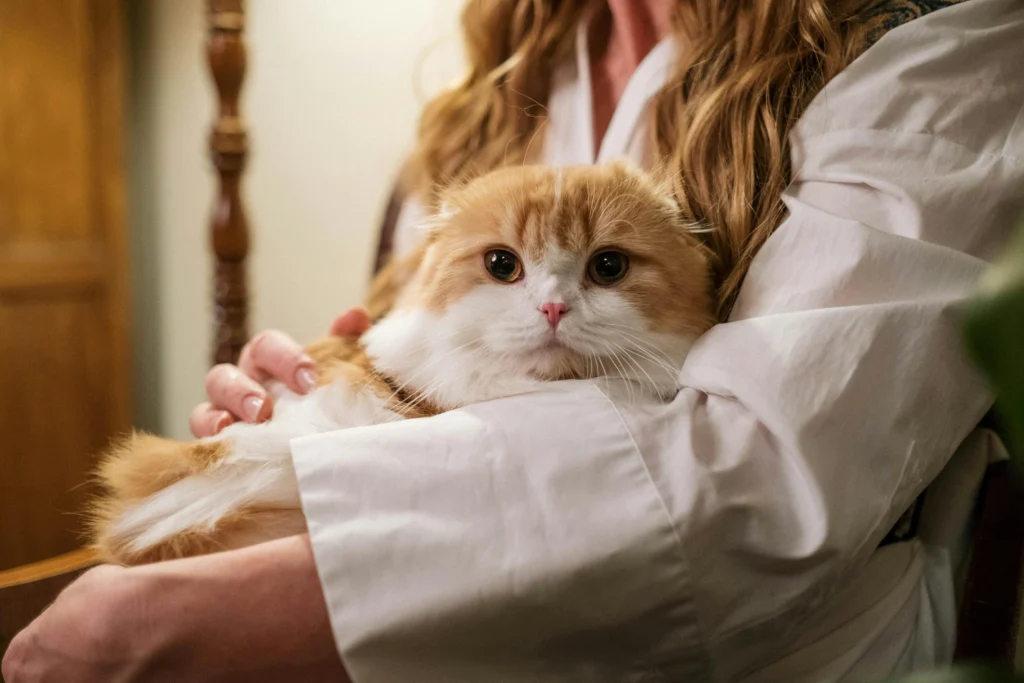
Nutrition and Hydration: How to Care for an Aging Cat Effectively
As cats enter their senior years, their dietary needs shift significantly. Understanding how to care for an aging cat includes making thoughtful changes to what and how they eat and drink. A balanced, nutrient-rich diet tailored to aging cats can help maintain energy levels, support joint health, and reduce the risk of chronic conditions.
Choosing the Right Senior Cat Food
Older cats often require fewer calories but more high-quality protein. Look for commercial cat foods labeled specifically for senior felines, which typically include added vitamins, minerals, and omega-3 fatty acids. These nutrients help support kidney function, skin and coat health, and cognitive abilities. If your cat has dental issues, consider switching to soft or wet food for easier chewing. It’s also wise to consult your vet before introducing new food types to ensure they align with any underlying health issues.
Encouraging Proper Hydration
Hydration is a critical aspect of senior cat care, yet older cats often drink less water than they should. This can lead to kidney strain and urinary tract problems. Make water more appealing by offering multiple clean water stations, using pet fountains, or even adding water to their wet food. Monitoring your cat’s hydration levels is key to preventing long-term health complications.
In summary, one of the most important aspects of how to care for an aging cat is meeting their changing nutritional needs and ensuring they stay well-hydrated. These simple but effective adjustments can extend your cat’s quality of life, helping them remain active, alert, and comfortable well into their golden years.
Supporting Mobility and Mental Health in Senior Cats
As your feline companion enters their golden years, it’s important to support not just their physical needs, but also their emotional and cognitive health. Caring for an aging cat means recognizing how age impacts their mobility and cognitive function and responding to those changes with thoughtful, compassionate support.
Encouraging Gentle Physical Activity
Aging cats may suffer from joint stiffness or early signs of arthritis, making movement more difficult. However, gentle, consistent exercise can support flexibility and preserve muscle tone. Encourage play with soft toys or gentle climbing on low cat trees or padded furniture. You can also place ramps near favorite spots to reduce the need for jumping, which may cause strain.
Providing warm bedding near windows or in sunny areas can also soothe sore joints, while still letting your cat enjoy stimulation from the outdoors.
Supporting Cognitive Function
Learning how to care for an aging cat also involves keeping their mind active. Puzzle feeders, new toys, or short interactive sessions can provide mental stimulation. If your cat appears confused or disoriented, maintaining a consistent daily routine can help provide comfort and stability. It fosters a feeling of safety and helps alleviate stress.
Speak to your cat often; even the sound of your voice can be comforting. Senior cats still crave attention and companionship, even if they’re less active than before.
Monitoring Behavior and Mood
Be observant of changes in sleep patterns, litter box habits, or appetite. These can be early signs of underlying issues like pain or cognitive decline. Quickly addressing these changes can greatly improve your cat’s quality of life.
In short, part of how to care for an aging cat means nurturing both body and mind through attentive, daily support.
Creating a Senior-Friendly Home Environment
As your cat enters their senior years, small changes around the home can have a big impact on their comfort and well-being. Understanding how to care for an aging cat involves adapting their living space to meet their evolving physical and emotional needs.
Make Movement Easy and Safe
Older cats often experience reduced mobility due to arthritis or muscle weakness. To help them navigate your home more easily, consider placing ramps or pet stairs near beds, sofas, and windowsills. This allows them to access their favorite spots without needing to jump, which can strain aging joints.
Avoid slippery floors by adding rugs or mats in high-traffic areas. If your cat struggles with climbing, ensure that food and water bowls, litter boxes, and beds are easily accessible on the ground level.
Comfortable and Quiet Resting Areas
Senior cats tend to sleep more, so providing multiple cozy resting spots throughout the house is essential. Choose soft, padded beds and place them in warm, quiet areas away from noise or foot traffic. If your cat has arthritis, orthopedic beds can offer additional support for sore joints.
Cats also appreciate safe hiding places, such as covered beds or small open boxes, where they can relax undisturbed.
Reduce Environmental Stress
One of the most overlooked aspects of how to care for an aging cat is minimizing stress. Older cats often prefer a predictable environment. Keep feeding times, litter box locations, and household routines consistent. Avoid sudden changes in furniture or introducing new pets, as these can cause anxiety.
A peaceful, accessible home helps your aging cat stay relaxed, healthy, and happy well into their senior years.
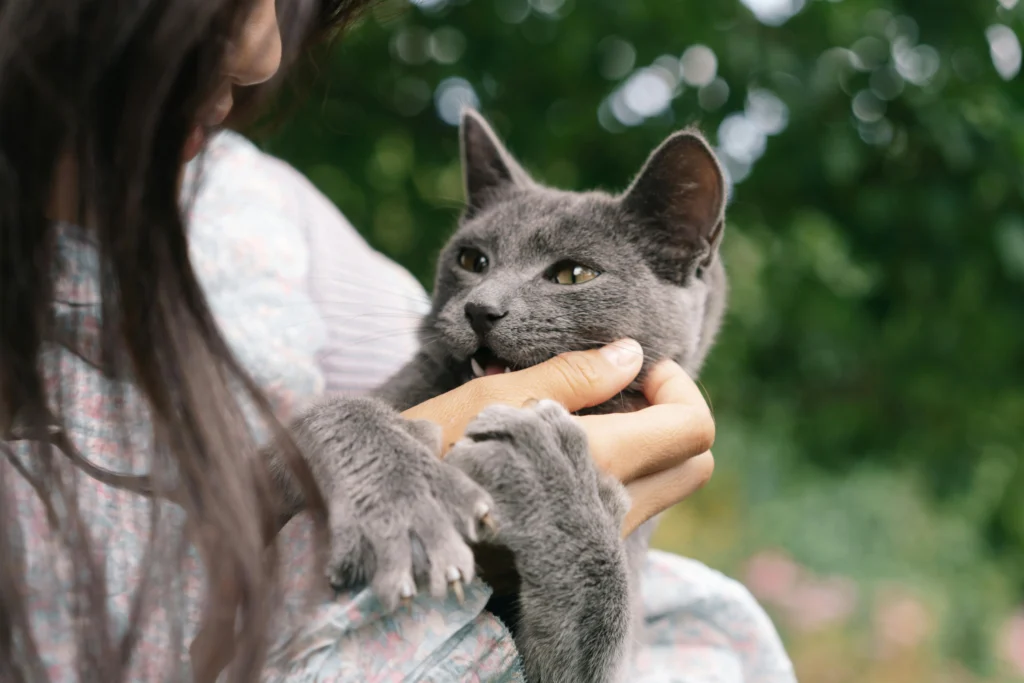
Monitoring Health Changes in Senior Cats
Understanding how to care for an aging cat requires not just attention to their comfort, but also being proactive about their health. As cats grow older, they become more vulnerable to chronic conditions that may not show obvious signs in the early stages. Regular monitoring and early detection can significantly improve their quality of life.
Observe Daily Behavior and Habits
One of the first steps in how to care for an aging cat is becoming familiar with their daily patterns. Pay close attention to their appetite, water intake, litter box habits, grooming behavior, and energy levels. Any sudden changes, such as eating less, drinking more, missing the litter box, or withdrawing from social interaction,n could indicate an underlying health issue.
Routine observation helps you identify subtle changes early, giving your veterinarian the chance to diagnose and treat issues before they worsen.
Schedule Regular Veterinary Checkups
Older cats benefit from more frequent vet visits, ideally every six months. These checkups help detect common senior cat health concerns like kidney disease, hyperthyroidism, arthritis, and dental problems. Your vet may recommend blood work, urine tests, or other screenings to catch issues early.
If you’re learning how to care for an aging cat, building a partnership with a trusted vet is essential. Together, you can create a tailored health plan that supports your cat’s evolving needs.
Use Preventive Care Measures
Maintaining flea control, keeping vaccinations up to date, and continuing regular dental hygiene are all part of comprehensive senior care. Don’t assume that aging means less care is needed often it means your cat needs more support and monitoring than ever before.
Managing Health Challenges in Senior Cats
As your feline companion enters their golden years, understanding how to care for an aging cat becomes essential for maintaining their quality of life. Senior cats are more vulnerable to long-term health problems like arthritis, kidney disease, hyperthyroidism, and dental complications. Staying proactive with health management is key to supporting their well-being.
Schedule Regular Veterinary Check-Ups
Routine vet visits are one of the most important ways to monitor your cat’s health as they age. Senior cats should visit the veterinarian at least twice annually, even if they seem to be in good health. Blood tests, dental exams, and weight checks help detect problems early before they become severe. Detecting health issues early often allows for more effective and less invasive treatment options.
Monitor Behavior and Physical Changes
Being observant of subtle changes in your cat’s behavior or physical condition is critical when learning how to care for an aging cat. Watch for signs like increased thirst, changes in appetite, weight loss, difficulty jumping, or excessive grooming. These can be early indicators of underlying health conditions that need medical attention.
Keep a log of your cat’s habits, especially if you notice gradual changes. This record can be incredibly useful for your vet to assess overall health trends over time.
Consider Specialized Diets and Supplements
Senior cats benefit from diets specifically formulated to support aging bodies. Look for foods that are easy to digest and enriched with joint support, omega-3 fatty acids, and antioxidants. Always consult your veterinarian before incorporating supplements like glucosamine or probiotics into your cat’s diet.
In essence, knowing how to care for an aging cat requires a combination of observation, preventive care, and tailored nutrition to ensure your furry friend remains happy and healthy for years to come.
Conclusion: A Lifelong Commitment to Your Aging Cat’s Well-Being
Caring for a senior cat is a rewarding journey that reflects your love, patience, and dedication. As your feline friend ages, their needs evolve, requiring thoughtful adjustments to their environment, nutrition, and healthcare routines. Knowing how to care for an aging cat can make all the difference in their comfort and longevity.
Consistency and Compassion Are Key
A consistent routine helps senior cats feel safe and secure. Feeding them high-quality, age-appropriate food, keeping their living space calm, and providing easy access to essentials like litter boxes, water, and cozy beds contribute significantly to their well-being. Don’t underestimate the power of gentle grooming, interactive play, and plenty of affection they can boost your cat’s mood and strengthen your bond.
Prioritize Preventive Health Measures
Proactive health monitoring is at the core of how to care for an aging cat. Regular vet visits, dental care, and watching for subtle behavioral changes ensure early detection of health concerns. Mobility aids, pain management plans, and enriching activities tailored to their physical abilities can help your cat remain active and engaged.
Supporting Your Cat’s Golden Years
The golden years of your cat’s life deserve attention and respect. By staying informed, adapting your care strategies, and responding to your cat’s changing needs, you offer them the best possible life in their senior stage. Aging doesn’t have to mean decline with proper care, it can be a time of peace, comfort, and love.
Ultimately, learning how to care for an aging cat is about cherishing every moment and giving them the dignity they deserve through intentional, compassionate care.
FAQ: How to Care for an Aging Cat
Q1: When is a cat considered a senior?
A cat is typically considered a senior around the age of 10. However, signs of aging can begin earlier, depending on genetics, lifestyle, and overall health. Recognizing these signs early is essential in understanding how to care for an aging cat effectively.
Q2: What changes should I make to my cat’s diet?
Older cats may benefit from a diet lower in calories but higher in high-quality proteins and specific nutrients like omega-3 fatty acids. Specialized senior cat food helps support joint health, digestion, and kidney function. Speak with your vet about the best dietary plan tailored to your cat’s age and condition.
Q3: How often should senior cats visit the vet?
It’s recommended that senior cats visit the veterinarian at least every six months. Regular check-ups help detect common age-related issues like arthritis, dental disease, and kidney problems early. Routine bloodwork and physical exams are vital when learning how to care for an aging cat.
Q4: What are some ways to enhance comfort in my home?
Create a comfortable environment with easy access to food, water, and litter boxes. Use ramps or pet stairs for higher surfaces, provide soft bedding, and keep their surroundings quiet and stress-free.
Q5: Do older cats still need exercise?
Yes, gentle play and stimulation are important. Toys, scratching posts, and short interactive sessions help keep your cat mentally and physically active without overexertion.

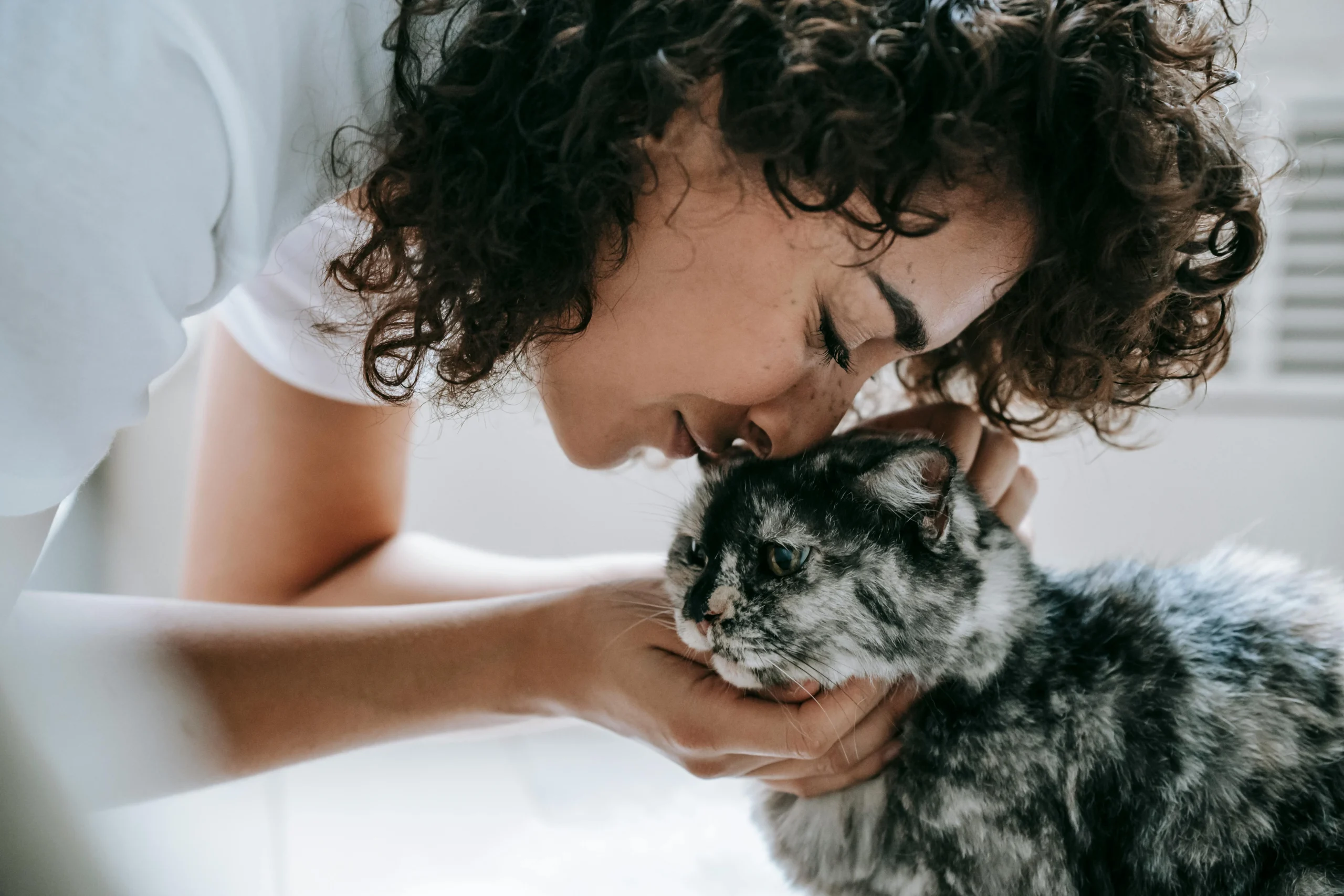


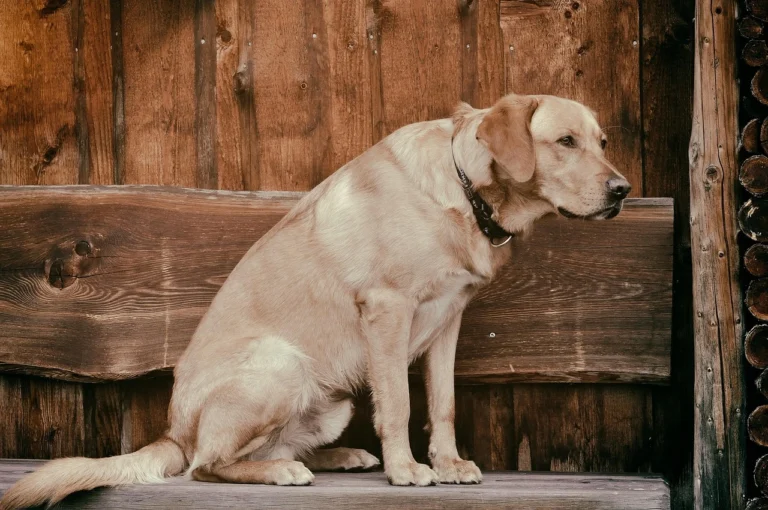
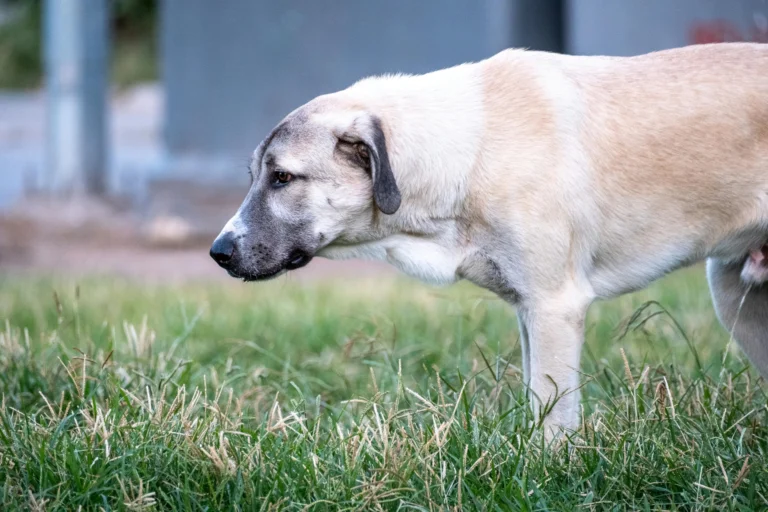


Hello. fantastic job. I did not expect this. This is a great story. Thanks!
Great tremendous issues here. I?¦m very satisfied to see your article. Thank you so much and i am looking ahead to touch you. Will you please drop me a e-mail?
Good write-up, I’m regular visitor of one’s blog, maintain up the nice operate, and It is going to be a regular visitor for a lengthy time.